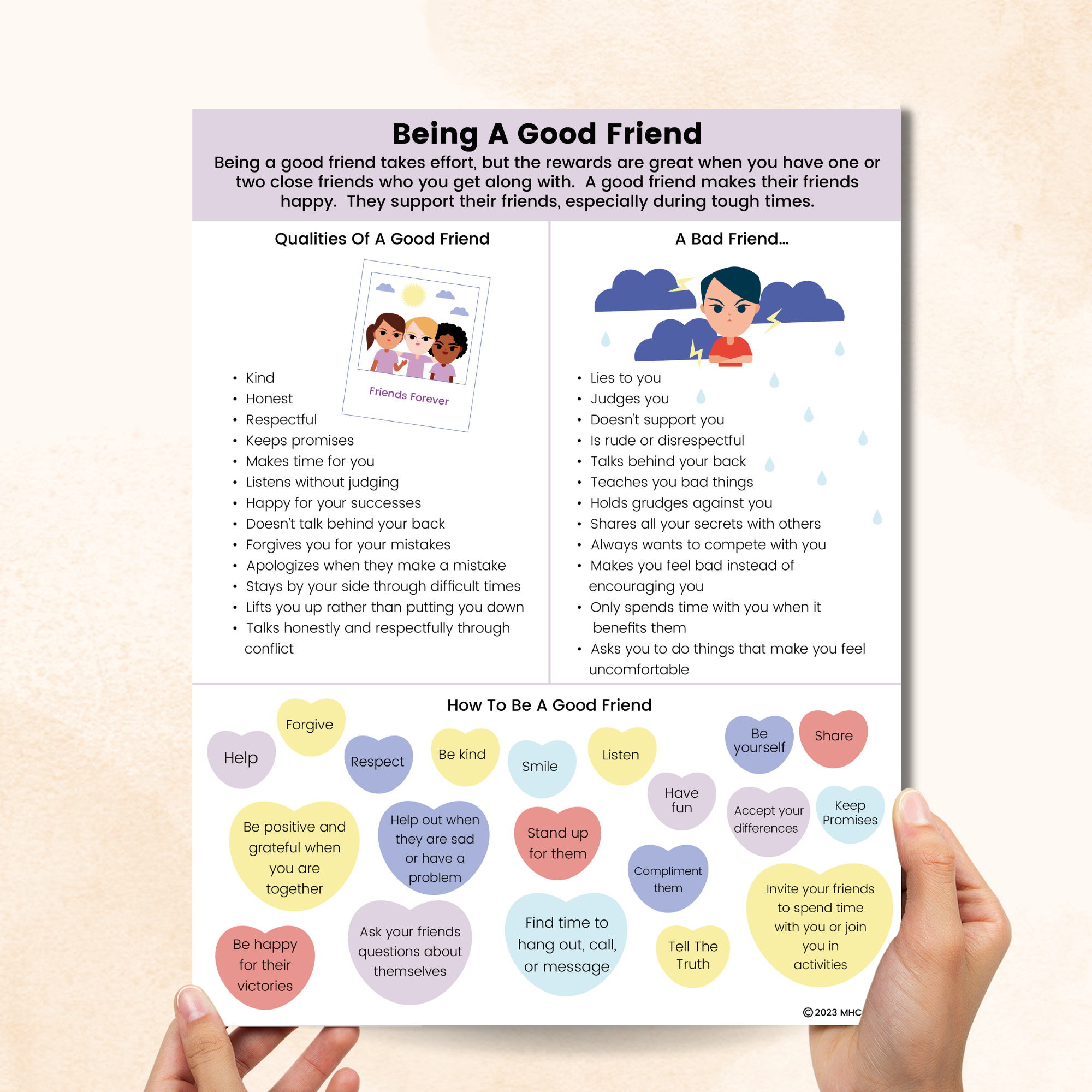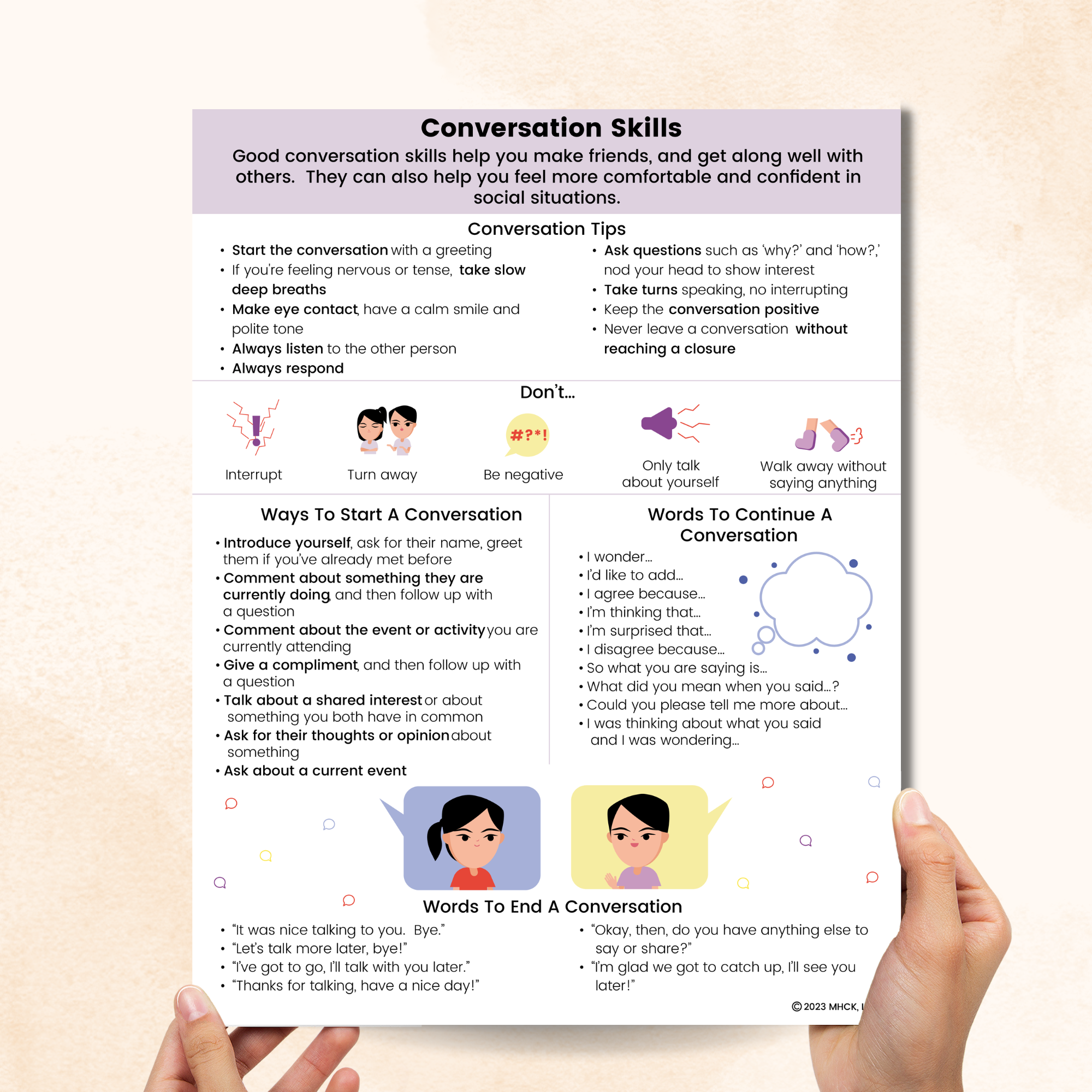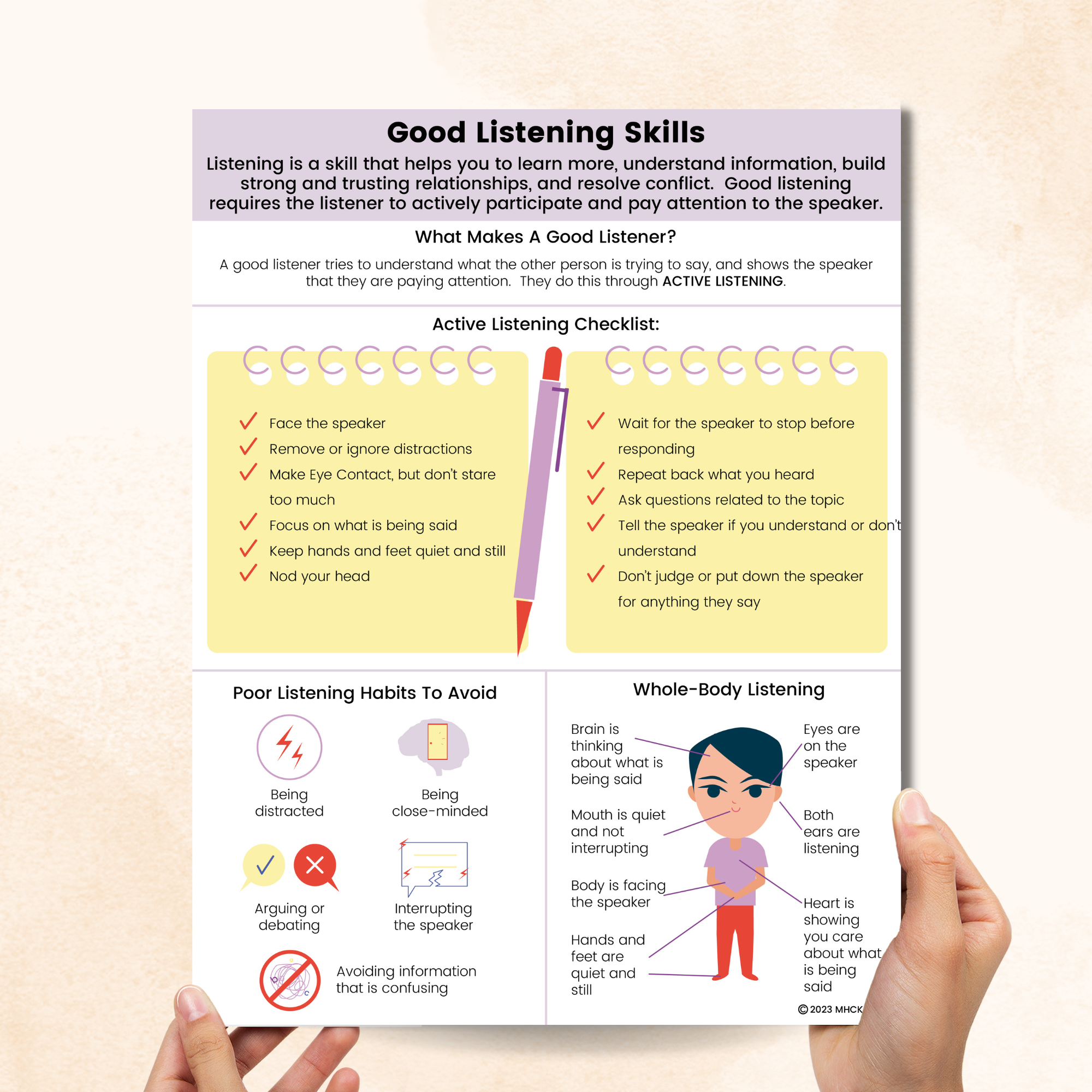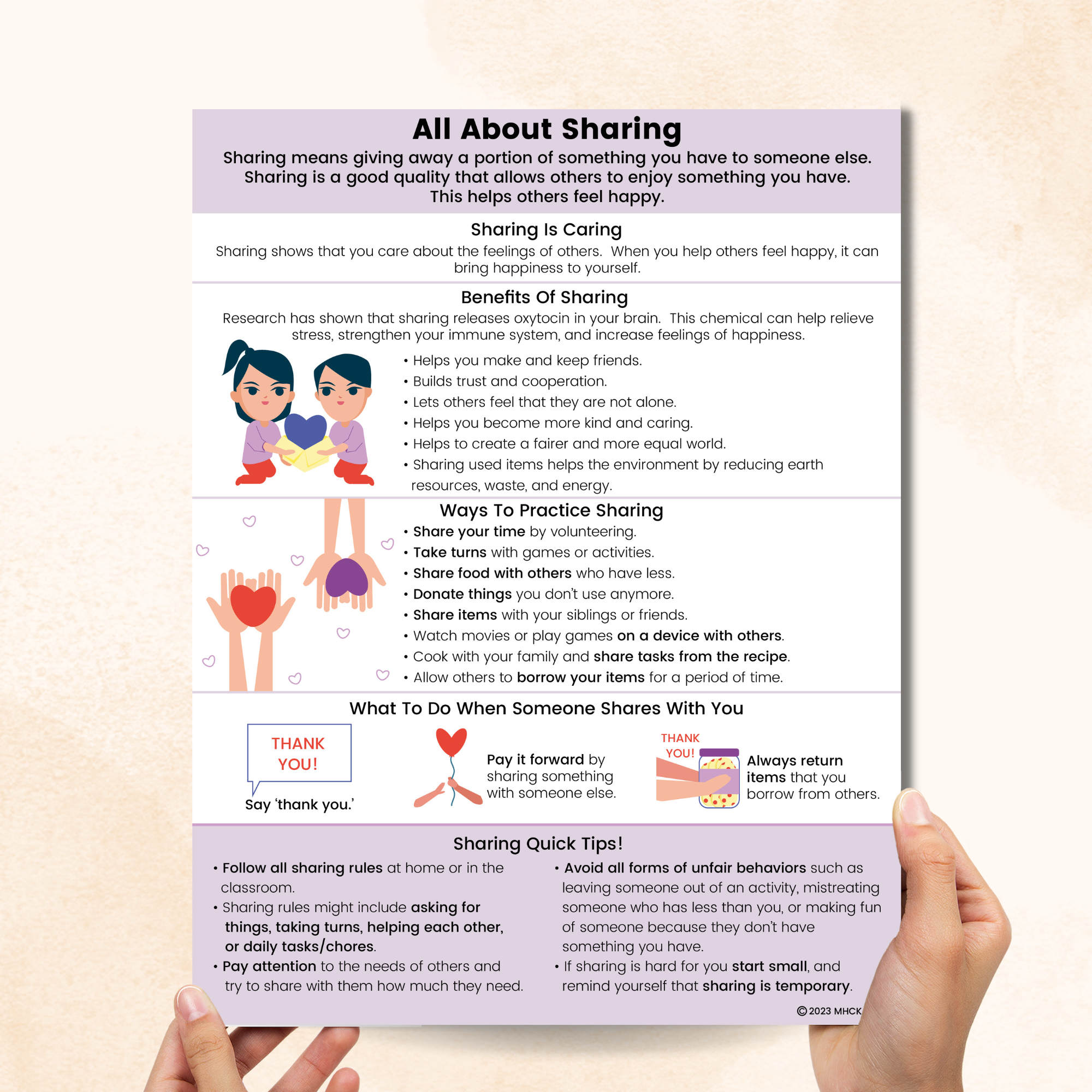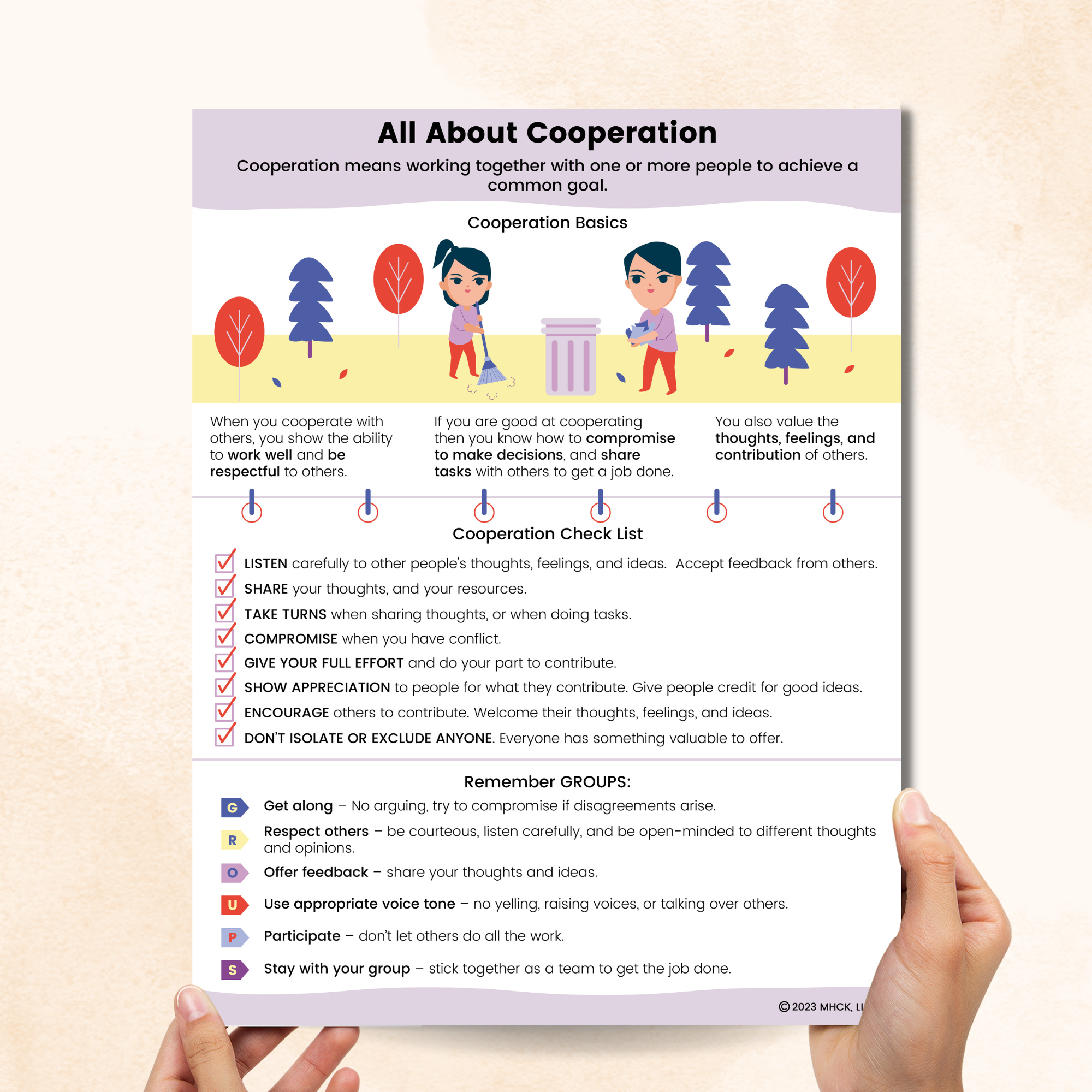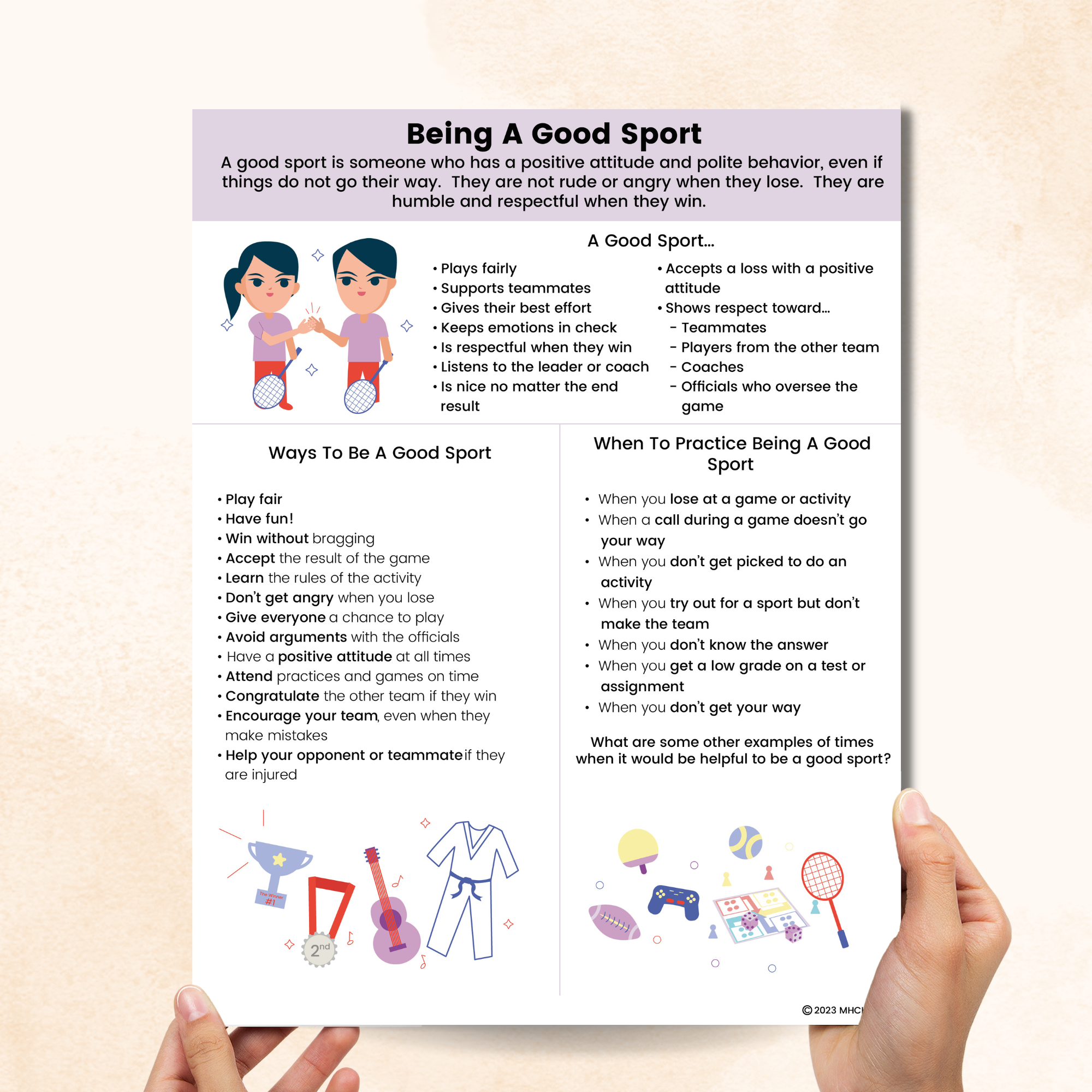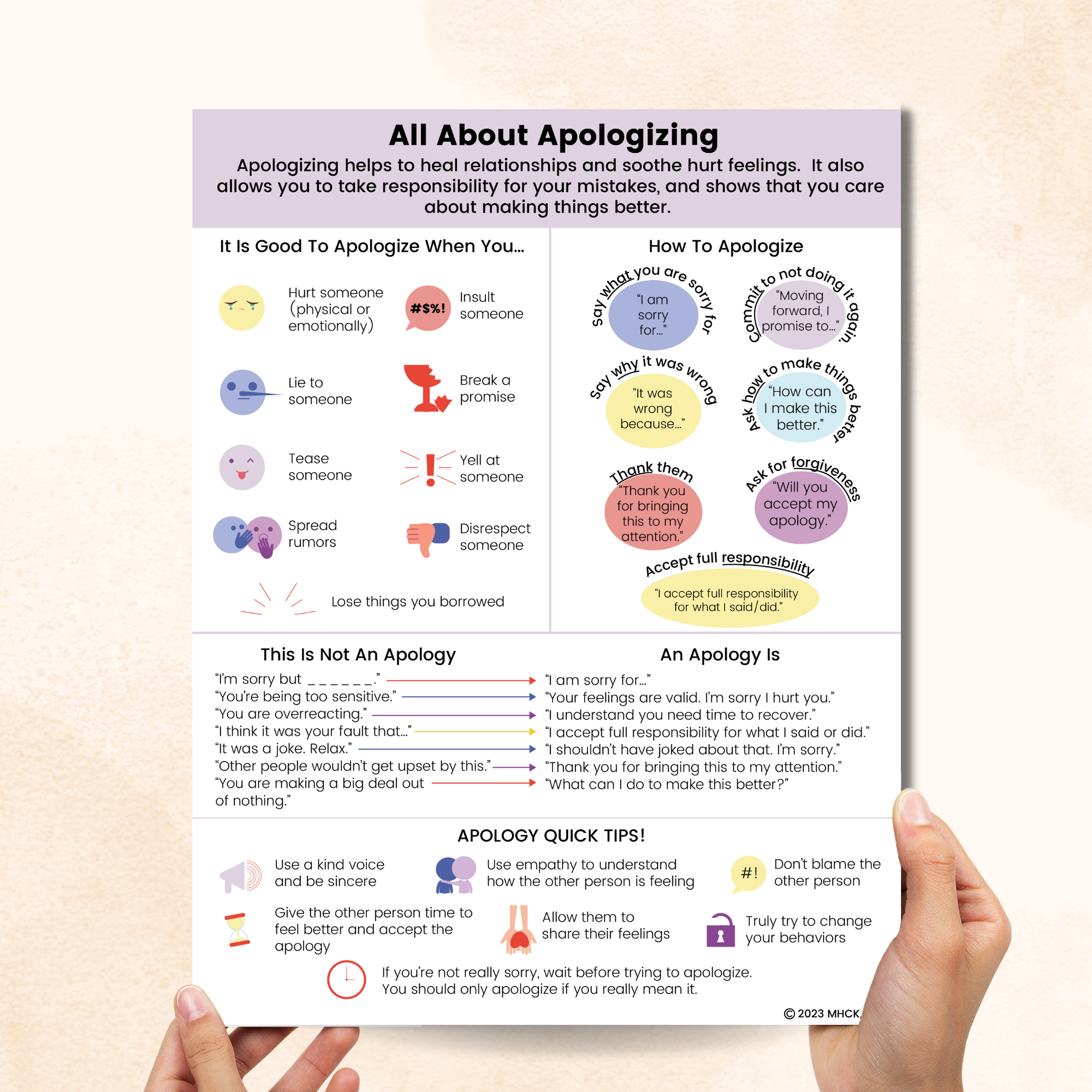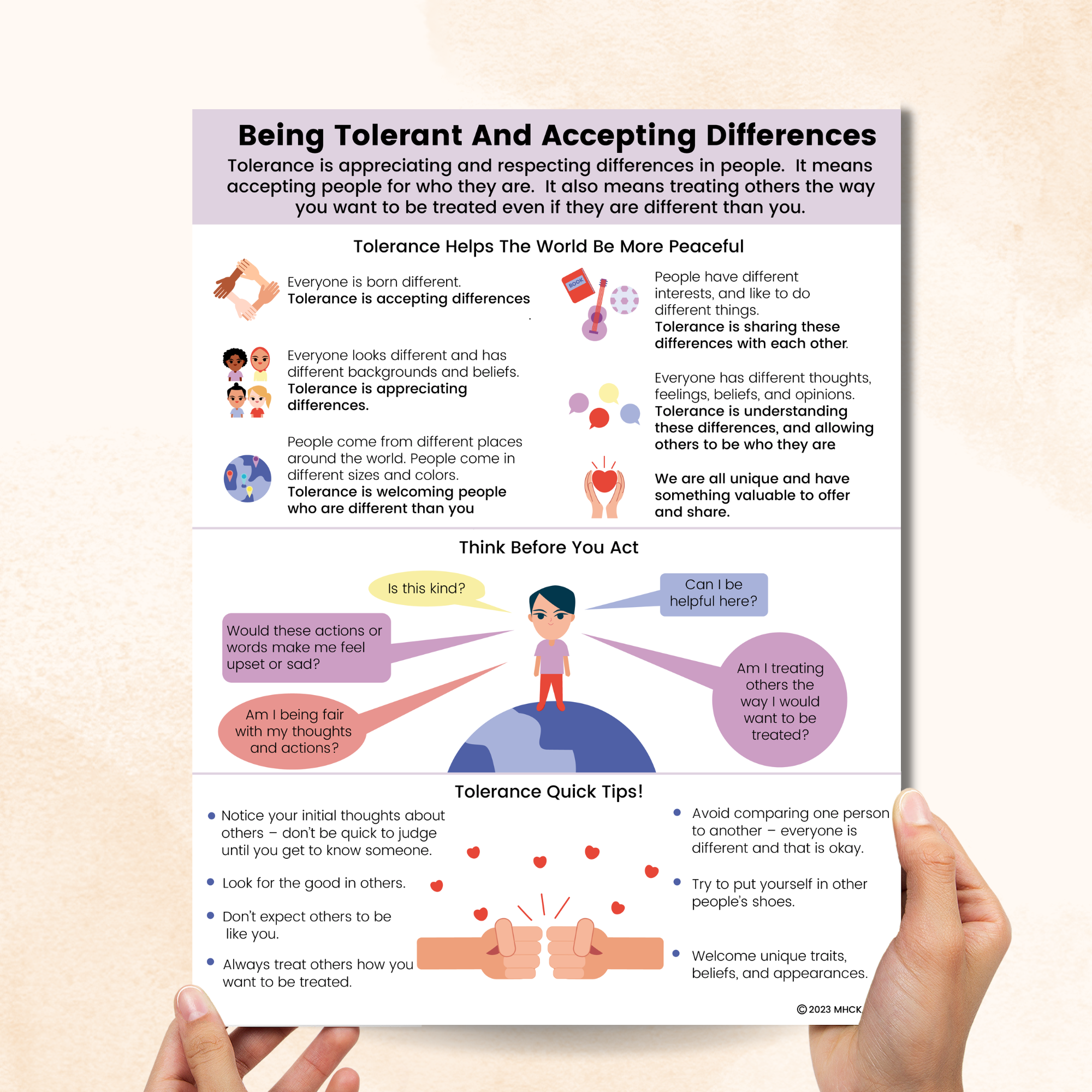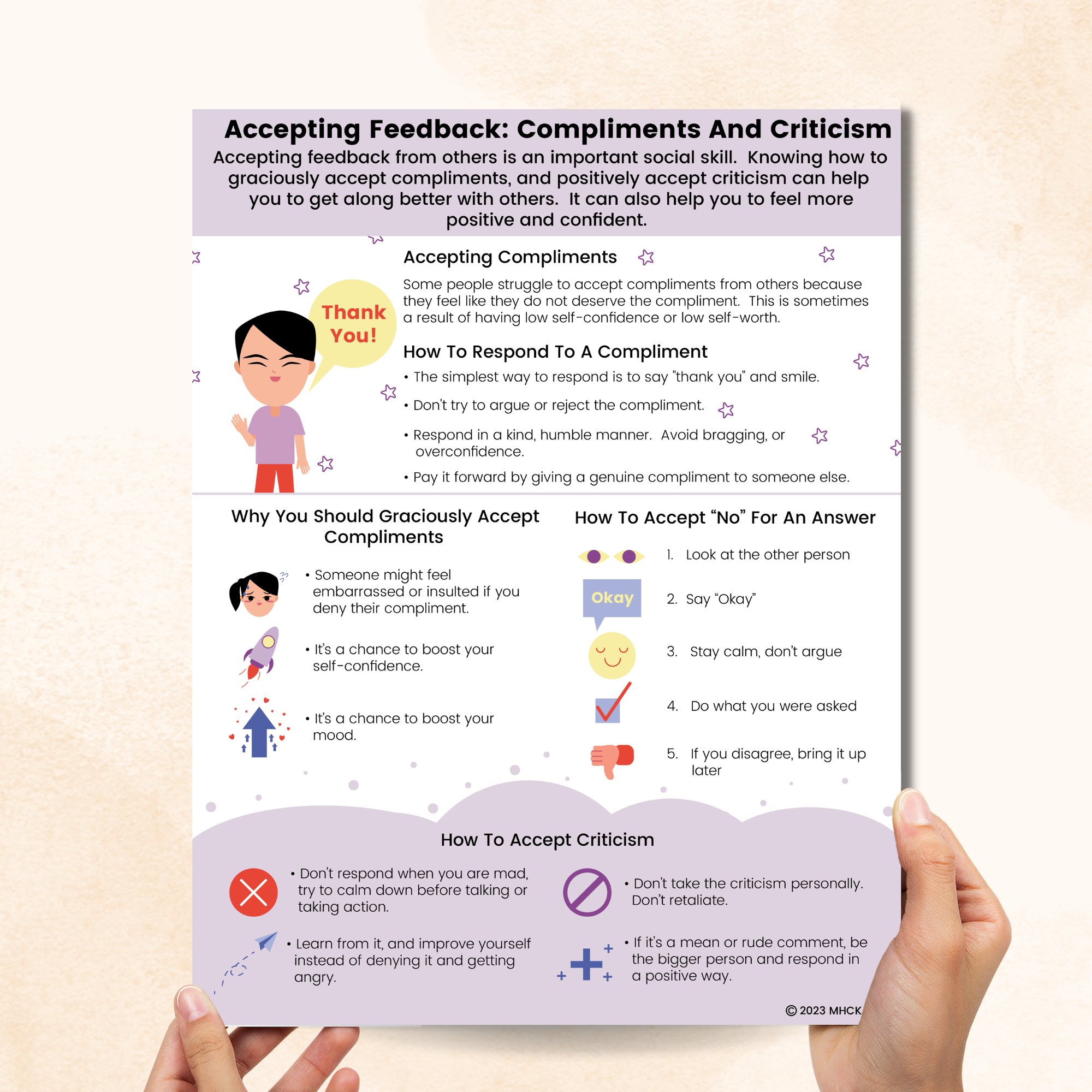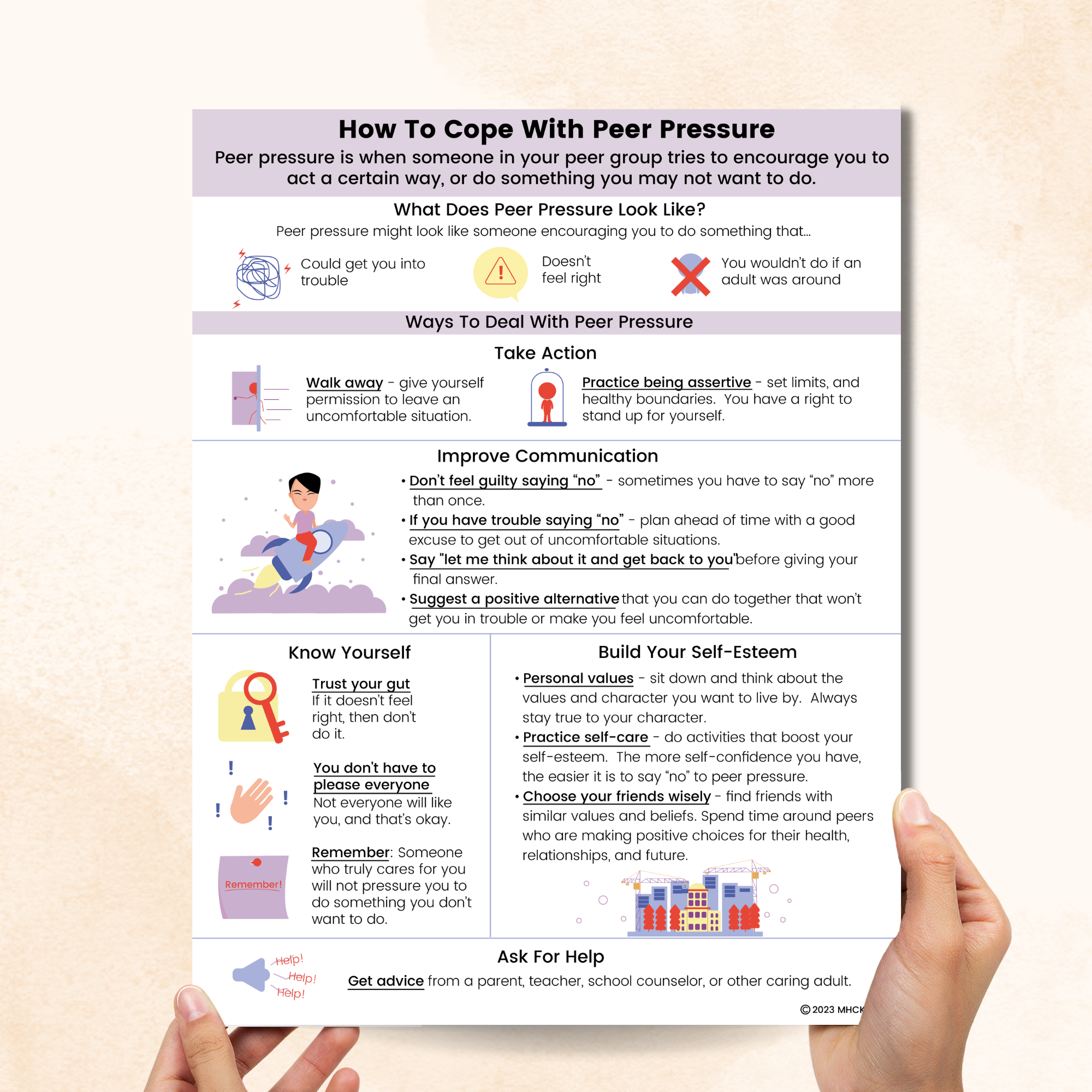|
Key Takeaways:
- Social skills worksheets provide tips and activities for kids to become better communicators and problem solvers.
- The benefits of using social skills worksheets include learning to become self-reliant and increasing adaptability in changing times.
- Some social skills worksheets include learning to apologize, receive criticism, and cope with peer pressure.
|
Social skills are essential for daily interactions. For school-aged children, they’re part of their core education. However, social skills encompass more than just saying please, thank you and learning to share. Socially adept children are better collaborators and competent leaders.
Explore these ten printable social skills worksheets for kids and teens to encourage healthy and enriching friendships.
What are Social Skills Worksheets?
Social skills worksheets are designed to assist children and teenagers in friendship-making and equip them to become efficient communicators. They help adolescents understand speech, gestures, and facial expressions, allowing them to maintain positive interactions with others.
Social skills for kids also prepare children with the appropriate conflict-resolution skills when challenging situations arise.
What are the Benefits of Using Social Skills Worksheets?
Social skills worksheets can benefit adolescents with mental, psychological, and developmental disorders but just as easily improve any child’s interactions. Here are a few advantages of using social skills worksheets:
-
Positive relationships. Adolescents with strong social skills have more nurturing interpersonal relationships. They are more empathetic, making them more approachable and responsive.
-
Improved conflict resolution. Social skills instill active listening and healthy negotiation, and they can improve a child’s ability to solve social problems while being sensitive to others’ feelings.
-
Increased adaptability. Socially skilled adolescents navigate change and uncertainty well. Because of their ability to adapt and respond, they experience minimal stress when sudden changes arise.
-
Enhanced executive functioning. Well-exercised social skills improve higher-order reasoning and thinking skills, allowing adolescents to succeed in academic and future professional settings [*].
10 Printable Social Skills Worksheets for Kids & Teens
Is your child struggling socially? Use these printable social skills worksheets to help your adolescent become more expressive, responsive, and articulate.
1. Being a Good Friend
The key to making friends is knowing how to be a good friend. Being a good friend promotes stronger relationships and increases a child’s sense of purpose.
Our worksheet outlines the qualities of a good and bad friend. For instance, a good friend is kind and respectful, while a bad friend would lie and talk behind your back. Our worksheet also suggests ways to connect with others, such as asking friends questions about themselves and celebrating their victories.
2. Conversation Skills
To make a friend, you need to have conversations. However, younger children aren’t seasoned conversationalists and may need a helping hand.
Our worksheet on conversation skills provides conversation tips like making eye contact, listening actively, and asking follow-up questions. It also suggests conversation starters like commenting about a recent activity or talking about a shared interest. Then, it outlines how to continue a good conversation and end one politely.
3. Good Listening Skills
Part of being a good conversationalist is being a good listener. Good listening skills allow adolescents to understand and retain information by building strong and trusting relationships.
Being a good listener entails facing the speaker, removing distractions, and asking questions about the topic. Our worksheet further outlines whole-body listening, such as both ears listening and having your eyes on the speaker.
4. All About Sharing
Children have a notoriously difficult time sharing, but it doesn’t mean they can’t learn. Sharing goes beyond lending their favorite toys to others. Sharing also entails giving someone your time and commitment.
In our All About Sharing worksheet, we outline the benefits of sharing, how to practice it, and what to do when someone shares with you.
5. All About Cooperation
With communication comes cooperation. When adolescents learn all about cooperation, they work to achieve a common goal. However, working with others doesn’t always come naturally, nor is it a simple process.
Our worksheet aims to instill cooperation basics like working well, respecting, compromising, and valuing others’ contributions.
6. Being a Good Sport
Even best friends will encounter conflict, but being a good sport can make things amicable. Kids and teens can demonstrate being a good sport during team games, group projects, and other activities by having fun, playing fair, encouraging others, and accepting the results.
7. All About Apologizing
There will come a time when your child or teen may hurt your or someone else’s feelings. It’s important that the understand what it means to make a genuine apology.
When learning to apologize, a child should know when to apologize. For instance, they might apologize when they lie to someone, say something hurtful, disrespect someone, or yell at someone.
Our worksheet also outlines how to apologize and what a genuine apology should look like. A sincere apology should include what you’re sorry for and why you were wrong and communicate that you take full responsibility.
8. Being Tolerant and Accepting Differences
People from different backgrounds have different values. Thus, it’s not uncommon for kids to have disagreements with their friends. It is, however, imperative to be tolerant and accept differences.
Tolerance and acceptance enable nurturing friendships between people. They encourage kids to think before they act or say something, look for the good in others, and avoid comparison.
9. Accepting Feedback: Compliments and Criticisms
While compliments feel validating, there may come a time when your child must accept criticism, which isn’t always easy to hear. Teach your child to accept feedback by learning to listen actively and to refrain from responding when their emotions are high.
Encourage them to use this feedback productively—to improve how they behave around others, learn to accept “no” for an answer, and practice gratitude.
10. How to Cope with Peer Pressure
It can be tempting for a child to do what their friends want, especially when they struggle to fit in. However, peer pressure can lead to dangerous paths of unhealthy behaviors. Thus, practicing good social skills for teens is critical for healthy development.
Roughly 90% of teenagers experience peer pressure, hurting their academic performance [*]. Thankfully, you can teach your child how to cope with peer pressure by outlining what it looks like.
Peer pressure might encourage a child to do something that feels wrong or makes them uncomfortable. Ways to deal with it include walking away or being assertive while trusting your gut and asking for advice.
The Bottom Line
Children aren’t born with perfect social skills. However, everyone takes time to develop them. By practicing patience, communication, listening, and coping with differences, they can nurture healthy relationships with others and perform well in school and professional settings.
Explore our other social skills worksheets at home and in the classroom. Your child will appreciate the benefits of learning to be with others.
Sources:
- Nir Madjar, Chubarov E, Zalsman G, Weiser M, Gal Shoval. “Social skills, executive functioning and social engagement.” Schizophrenia research: cognition, 2019.
- Binnaz Kıran-Esen. “Analyzing Peer Pressure and Self-Efficacy Expectations Among Adolescents.” Social behavior and personality, 2012.




